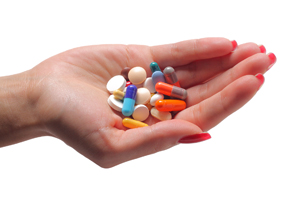UK researchers hail first new approach to antidepressant medication for 20 years
Royal College of Psychiatrists Press Release
Millions of people with severe, treatment-resistant depression could get their lives back by adding an anti-inflammatory drug such as aspirin to their anti-depressant medication, a leading consortium of UK researchers in biological psychiatry, the Psychiatric Research into Inflammation, Immunity and Mood Effects (PRIME), reported at the International Congress of the Royal College of Psychiatrists in Brighton.
 Dr Carmine Pariante, Reader in Biological Psychiatry at the Institute of Psychiatry, Kings College, London, told the Congress that a series of studies published over the last five years now provides sufficiently clear evidence to justify the use of anti inflammatory drugs alongside antidepressant medication.
Dr Carmine Pariante, Reader in Biological Psychiatry at the Institute of Psychiatry, Kings College, London, told the Congress that a series of studies published over the last five years now provides sufficiently clear evidence to justify the use of anti inflammatory drugs alongside antidepressant medication.
“This is the first new approach to antidepressant medication for more than 20 years. Despite the urgent need for better drugs for this devastating and disabling disorder, we’ve only had me-too drugs since Prozac, the first SSRI (selective serotonin reuptake inhibitors) was licensed.”
It’s well known that long-term illness is a trigger for depression and that people who suffer from these chronic disorders also have high levels of inflammatory markers known as cytokines. These links have now been shown by clinical trials carried out by PRIME researchers from Brighton, Glasgow and Bristol as well as King’s College, London.
Two recent studies by UK scientists showed levels of clinical depression increased significantly when people were given medication for Hepatitis C and typhoid vaccination, two procedures known to raise levels of inflammation.
Doctors still cannot explain the link – though one theory is that evolutionary biology is responsible for both depressive traits and inflammation. “All the behavior that we call depression can also be seen in sickness behavior, that is, the behavioural changes that occur during inflammation; it may be that humans evolved these two behaviours as a protective mechanism,” Dr John Potokar of the Academic Unit of Psychiatry at Bristol University told the meeting.
Research elsewhere in the world is focusing on testing anti-inflammatory as an antidepressant strategy, drugs including TNF inhibitors and COX-2 inhibitors that are both expensive and have significant side effect. However, the UK team is now seeking funds to carry out an authoritative clinical trial to test an anti-inflammatory that is alternative to both new, expensive anti-inflammatory drugs, and to older anti-inflammatory drugs that, like aspirin, can cause internal bleeding.
Dr Pariante said: “We are considering Minocycline, a cheap, safe antibiotic that is known to dampen down inflammation. We hope to show that adding this drug to antidepressant medication will improve the effectiveness of SSRIs and other therapies and enable people with treatment-resistant depression to get effective help for the first time.
Reference
International Congress of the Royal College of Psychiatrists, Brighton, 28 June – 1 July 2011
Further help on depression
We hope you have found this information useful, please also see:
Related Articles
First aid classes offered in mental health
GP ‘list-cleansing’ drive could affect the vulnerable
The leading cause of disabiity in world's youth - mental illness
One in four teens has felt suicidal
Rates of common mental illness not rising, says new study
Improving health services for vulnerable children and young people





